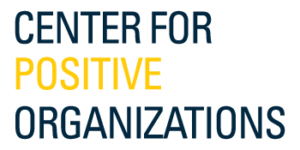Inc. Magazine’s “coolest small company in America,” Zingerman’s Community of Businesses (ZCoB), is an exemplar positive organization known for its culture and award-winning food. This case covers the ZCoB’s decision in 2013 to migrate toward broad-based employee ownership and the iterative, inclusive process by which Zingerman’s Partners Group researched and crafted a new ownership design for the ZCoB. Should they use an ESOP, equity compensation, become a cooperative, or create their own model? As students learn about Zingerman’s culture (e.g., its progressive views on sustainability, commitment to open book finance, decision-making by consensus) and evaluate which model might be the best match, they grapple with questions that are top-of-mind for the partners: Who will own the ZCoB, and how will it be run when the founders (who own 30-67% of each Zingerman’s business) are no longer living? How can it foster a positive, thriving workforce that is the driving force behind a sustainable business?
Zingerman’s Community of Businesses: Broad-Based Ownership, Governance, & Sustainability
by: Wayne Baker
Core Disciplines: Leadership/Organizational Behavior, Marketing/Sales, Strategy & Management
Available Documents
Click on any button below to view the available document.
Make sure you are registered and/or logged in to our site to view product documents. Once registered & approved, faculty, staff, & course aggregators will have access to full inspection copies and teaching notes for any of our materials.
$3.95
If you need to make copies, you MUST purchase the corresponding number of permissions, and you must own a single copy of the product.
Electronic Downloads are available immediately after purchase. "Quantity" reflects the number of copies you intend to use. Unauthorized distribution of these files is prohibited pursuant to term of use of this website.
Teaching Note
This product has a teaching note available. Available only to Registered Educators. Please login to view it.
Description
Teaching Objectives
After reading and discussing the material, students should:
- Describe how the culture, beliefs, and behaviors of an exemplar “positive organization” support it in fostering a thriving workforce
- Assess existing models of broad-based employee ownership, with particular attention to how each model might incentivize employees and to what extent each model includes employees in governance of the organization
- Evaluate employee ownership models against a company’s culture and goals to recommend which model—or combination of elements from various models—could effectively achieve those goals
- Examine a new perspective on sustainability that pursues human and organizational thriving and views businesses as important parts of a broader ecosystem (of families, communities, suppliers, and the environment). Specifically, students will consider how a thriving workforce contributes to a sustainable business in our modern service- and knowledge-driven economy.

